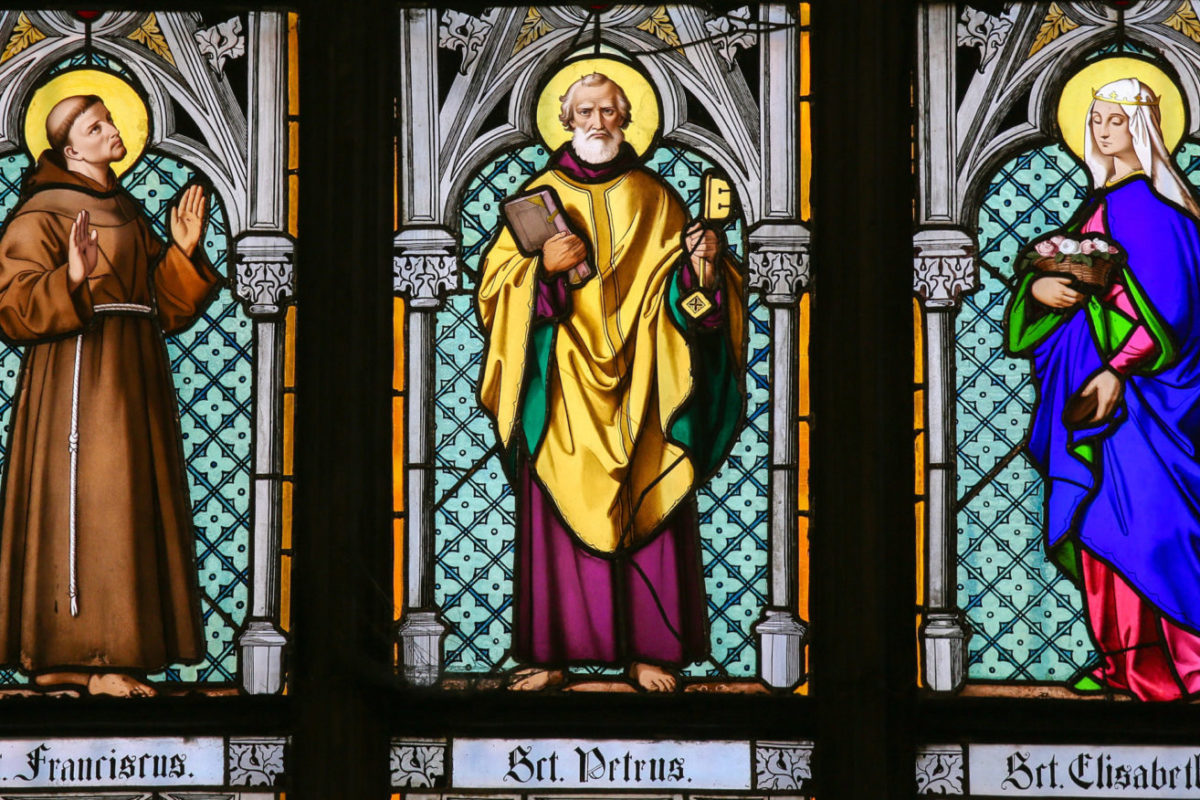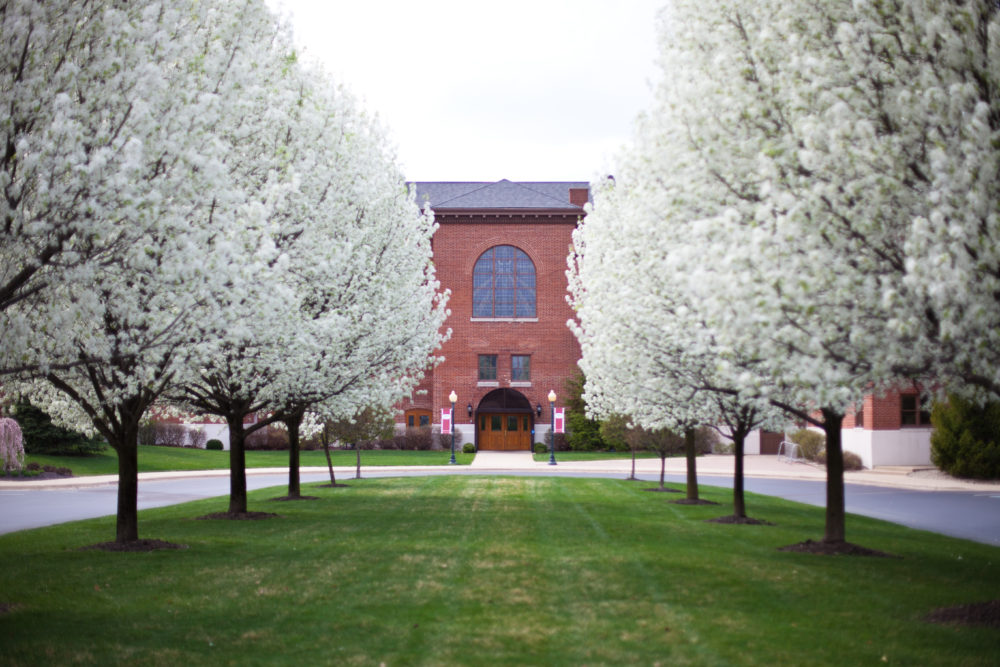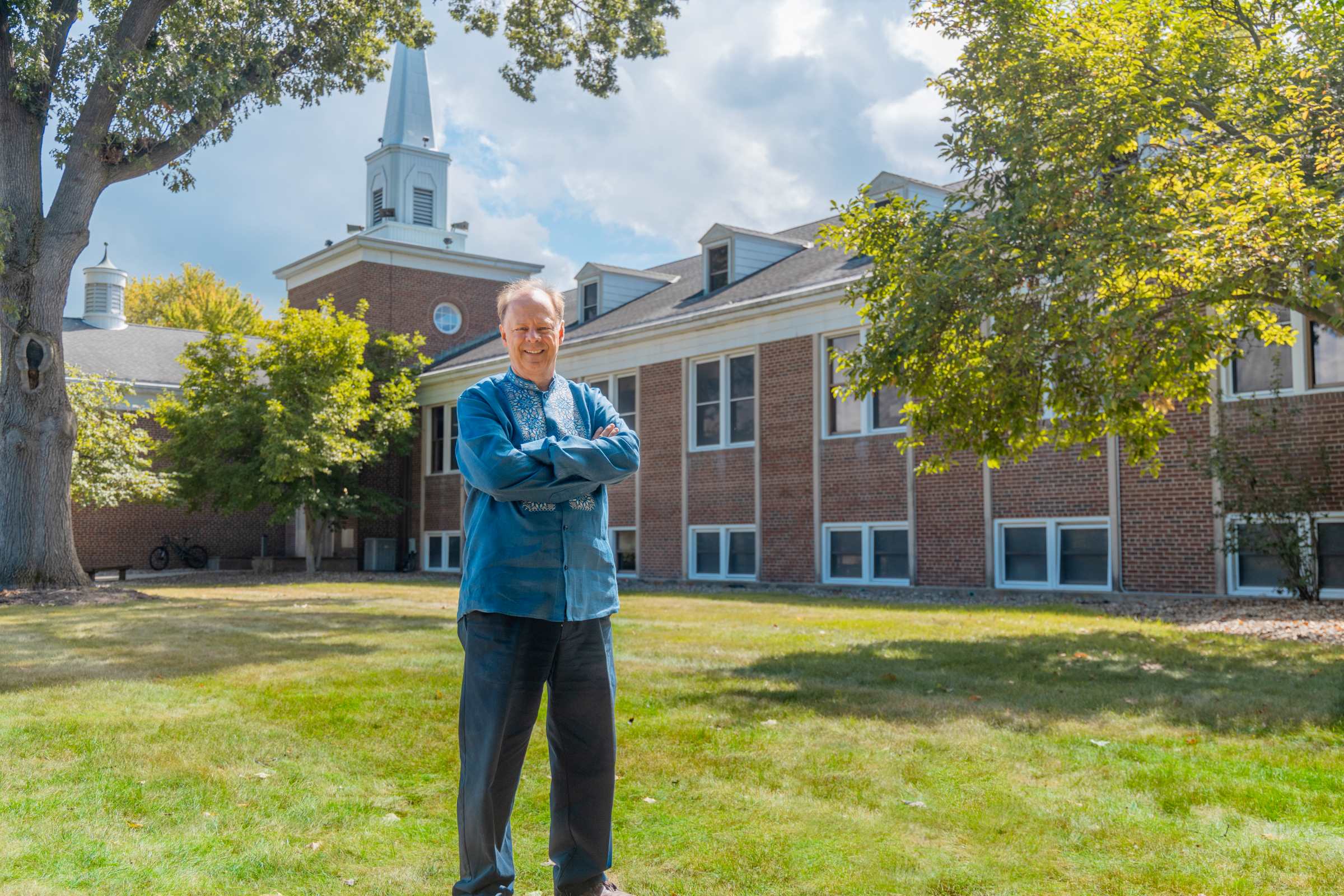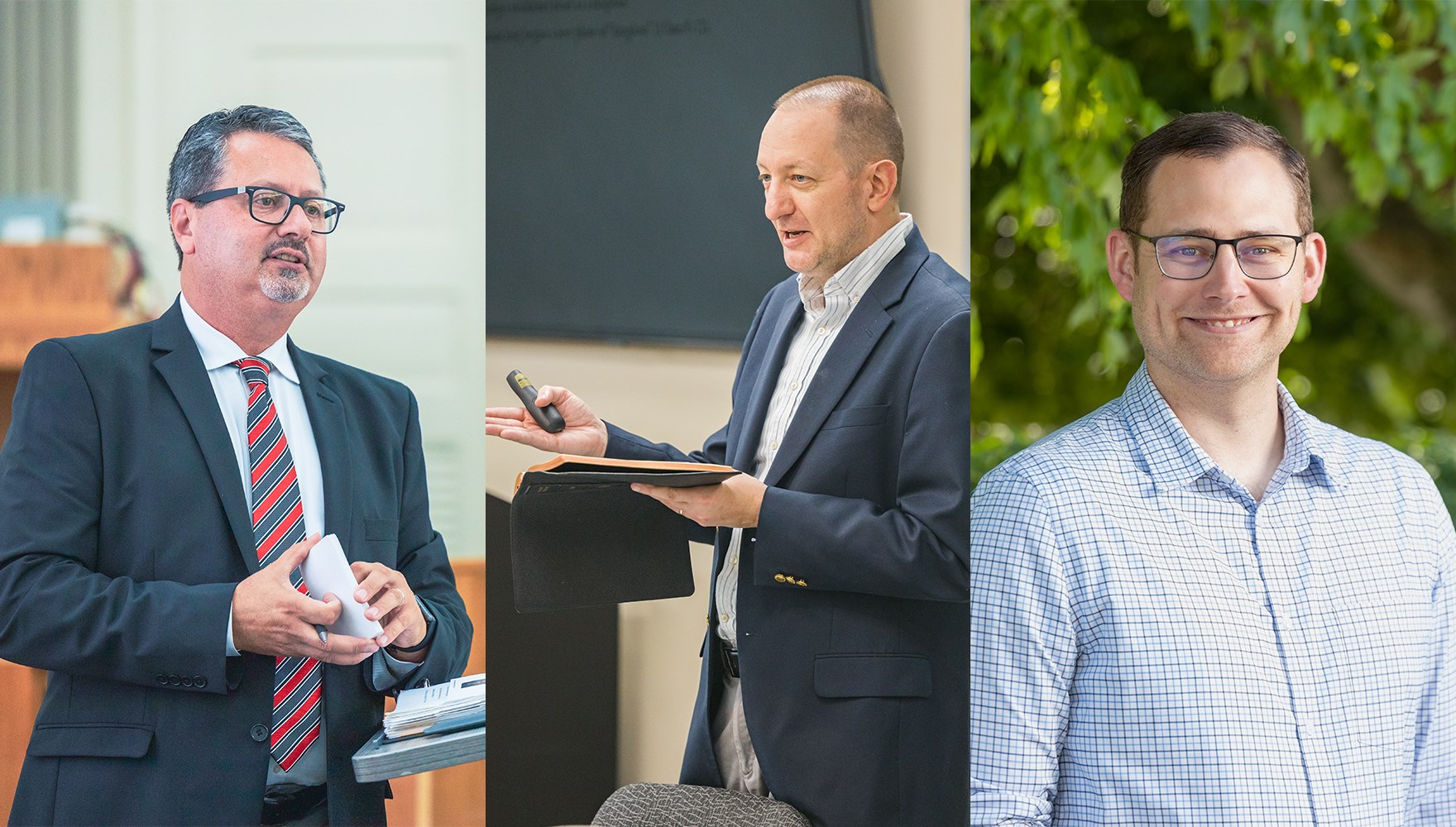December 21, 2021
What Does Saint Mean?
Written By Grace Theological Seminary
Tagged With Master of Divinity Dr. Matt Harmon

It can be easy for people to separate Grace College from Grace Theological Seminary and assume there exist two different schools. Rather, the undergraduate School of Ministry students are integrated into our seminary programs. We believe that every person has been created by God to do good works and is called to be a witness in their chosen career field. In that sense, we are equipping saints for service.
Often when one hears the word saint, the first thing that comes to mind is a person who is especially holy or religious. For others it might be a person who has been officially recognized (the technical term is “canonized”) by the Roman Catholic church for their “heroic virtue” and evidence of at least one miracle performed in their lifetime.1 But as it is used in the Bible, the term saint has a different meaning.
So, what does saint mean? In its most basic sense, a saint is a “holy one,” someone who is set apart for God’s special purposes. As a result, every follower of Jesus Christ is a saint. In most of his letters, the apostle Paul refers to the recipients as saints, including the church at Corinth, where there were significant moral and theological problems! The New Testament writers draw their use of the word saints (“holy ones”) from the Old Testament (e.g., Exod 31:13; Lev 11:45; 19:2; Dan 7:18, 27). Particularly important is Exodus 19:5-6, where God refers to Israel as “a kingdom of priests and a holy nation.” I Peter 2:9 applies this same language to believers: “you are a chosen race, a royal priesthood, a holy nation, a people for his own possession, that you may proclaim the excellencies of him who called you out of darkness into his marvelous light.”
To understand what it means that every follower of Christ is a saint, we can look at it from two different, but complementary, angles. The first is our position before God. In 1 Corinthians 1:30 Paul writes that Christ Jesus “became to us wisdom from God, righteousness and sanctification and redemption.” The word translated “sanctification” (or “holiness” in some translations) is part of the same word family as the word for “saint.” All who are identified with Jesus Christ by faith are given the status of “holy” before God because of what Jesus has done for us.
The second angle in knowing is our experience. In other words, because of our status as “holy ones” our lives should reflect that reality. Peter challenges believers to “not be conformed to the passions of your former ignorance but as he who called you is holy, you also be holy in all your conduct” (1 Pet 1:14-15). This command is grounded with a quote from Leviticus 11:44, “since it is written, ‘You shall be holy, for I am holy’” (1 Pet 1:16). As Christians we demonstrate that we are set apart for God’s special purposes by living lives that reflect (albeit imperfectly) the moral purity of God himself. In that sense, Hebrews 12:14 can exhort believers to “Strive for peace with everyone, and for the holiness without which no one will see the Lord.”
If you have turned away from your sins and trusted in Jesus and what he has done on the cross, you are a saint, a “holy one.” What does saint mean? It means God has set you apart for his special purposes in this world and has sent the Holy Spirit to dwell in you. The Holy Spirit is at work in you to transform your life so that you reflect the ultimate holy one, the Lord Jesus Christ.
Welcome to sainthood! Would you like to learn more about the Master of Divinity in General Studies and how you can be equipped to fulfill your calling as a saint? Get started today by connecting with our friendly admissions staff.
1 See http://www.catholic.org/saints/faq.php#how-does-the-church-choose-saints
Matthew S. Harmon
Matthew S. Harmon, Professor of New Testament studies, loves to help people understand the beauty of Jesus Christ as revealed in the Scriptures, seeing it as the key to life transformation (2 Corinthians 3:18). As a result, the focus of his ministry is teaching and preaching God’s word in various contexts. He has a passion for research and writing, specializing in the use of the Old Testament in the New Testament, biblical theology, commentary writing and the Pauline epistles. He is an active member of Christ’s Covenant Church, where he serves on the preaching team and regularly teaches Sunday School.
Share
Tagged With Master of Divinity Dr. Matt Harmon



